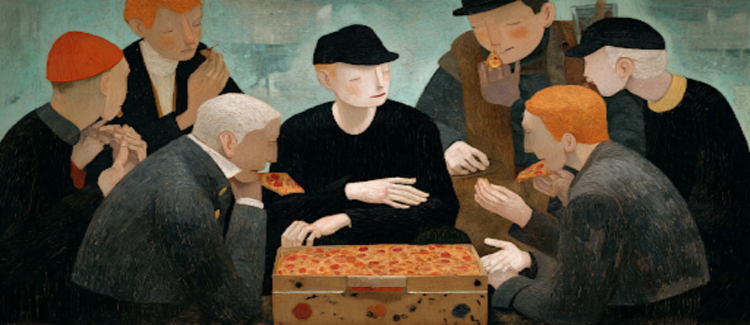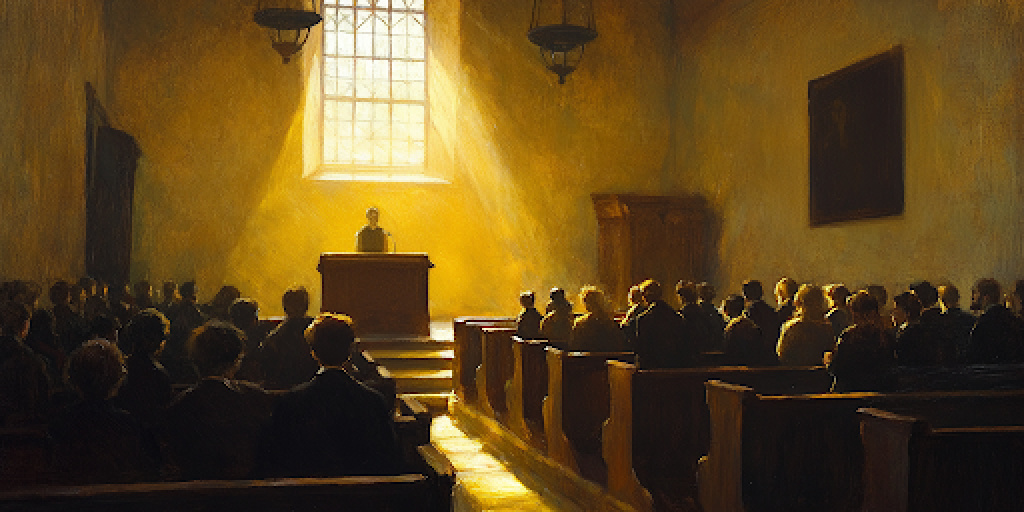In a recent column, Jacob Hess wrote eloquently and thoughtfully about the need to preserve and promote ideological and perspectival diversity on college campuses. Jacob’s voice is one I always welcome—he pushes me to think deeply, and often in new ways, about important issues. (I’ll refer to Jacob by his first name because we are friends.) I am broadly sympathetic with both his diagnosis of the problem and his prescription for some of the ways we can address it.
However, in building his case, Jacob also referred to the remarks that Brad Wilcox, a member of the General Young Men’s Presidency of The Church of Jesus Christ of Latter-day Saints and a religious education professor at Brigham Young University, recently made during a youth fireside. We have since learned that this was not a singular occurrence; Brother Wilcox has made similar comments at numerous other church speaking engagements in recent years. Wilcox’s comments about the LDS Church’s race-based priesthood-temple ban, women and priesthood ordination, and people of other faiths went viral. Quotes and summaries can readily be found elsewhere, so I don’t feel the need to restate the talk’s content here.
Jacob’s lumping in of Brad Wilcox’s talk with the issue of freedom of expression on college campuses fell flat for me. Though Wilcox is a college professor, his comments came in a church setting; we’re not talking about anything he has said in a classroom in his professional role. Wouldn’t it be wonderful if Wilcox and the rest of us used this opportunity to listen, learn, and grow, rather than to retrench into our predictable patterns of seeking offenders for a word and then defending at all costs our friends?
What Wilcox said about the priesthood-temple ban was simply wrong. Not just tonally wrong, but factually wrong, theologically wrong, and morally wrong. His expressed views do not fall into the category of reasonable people disagreeing, or making suppositions in areas where the evidence is inconclusive. African Americans were ordained to the priesthood prior to 1978. That privilege was then taken away from them for 126 years. No one has produced a scrap of reliable historical documentation showing that the change came as a result of divine revelation, though in the absence of evidence many Church members (including leaders) nevertheless believe this to be the case. Furthermore, by emphasizing that whites had also been asked to wait many years before receiving the priesthood, Wilcox reframed the priesthood-temple ban into a story of white deprivation—which was shockingly insensitive to the past and present effects of racial exclusion on our black brothers and sisters.
Nor is the precedent of the limited distribution of the priesthood in ancient times an apt parallel. At no point was the Levitical priesthood given and then taken from other tribes, nor was there any stigma attached with not holding the priesthood. No Old Testament prophet taught that any of the eleven tribes’ non-ordination came because of a divine curse. Moreover, I’m not sure that we want the Old Testament’s narrow view of worthiness for priestly and temple service—for instance, hunchbacks, dwarfs, those who were lame, blind, disfigured, deformed, or with maimed hands, feet, or eyes could not serve as priests because they were understood to “profane” the temple (Lev. 21:16-23)—to inform our understanding of the glorious restoration of the priesthood and temple in modern times.
Several years ago the Church published an essay that does provide historical context for the decision by Brigham Young and subsequent church presidents to withhold priesthood ordination and temple access to church members of African descent. In 2016 President M. Russell Ballard told church educators that they should “know the content in these essays like you know the back of your hand.” In his comments, Brother Wilcox failed to meet that important educational standard—instead purveying, or at the very least implying, the kinds of false equivalencies and explanations that the Church’s essay officially “disavows.”
Wilcox’s statements that women can “just waltz into the temple” without priesthood ordination and that people of other faiths are simply “playing religion” are similarly wrong—once again, tonally, factually, theologically, and morally. Even granting that he chose his words for rhetorical effect, they were completely out of step with the teachings of scripture (which never once states that women have an innate spiritual superiority to men that must be compensated for by priesthood ordination) and modern prophets and apostles (who have taught that “the great religious leaders of the world such as Mohammed, Confucius, and the Reformers … received a portion of God’s light”).
So on these key points, Brother Wilcox was wrong. Period. Saying these things in any context would be wrong for a general officer of the Church and a BYU religious education professor; doing so in a fireside meant to help young people keep the faith is the very definition of counterproductive.
In the hours and days after the initial video surfaced, the reactions were swift, strong, and predictable. The ones I saw tended toward two extremes—those who wanted Wilcox to be fired and released for this serious error and those who defended Wilcox by arguing the critics were being too sensitive and that the much good he has done in building testimony and faith over several decades outweighs a few stray remarks (which were basically right in substance anyhow). And how dare anyone publicly critique or support (depending on which flag you’re flying) a church leader? In other words, this episode—like virtually everything else these days—immediately got shoehorned into tiresome formulas. It was the “woke” crowd wanting to “cancel” a good man for making a “politically incorrect” mistake. Or it was another display and subsequent defense of “white male privilege,” “patriarchy,” a “toxic” church culture, and generally deplorable intolerance.
To his credit, Brother Wilcox has publicly apologized twice (to date), once in a written statement issued the very next day and even more fully in a fireside he gave a week after the incident in question. That is no small thing. I absolutely trust that he has been sincere in seeking pardon, including from the Lord. I also absolutely trust in the Lord’s forgiveness—for Brother Wilcox, and for all the wrong things I have said in my life. Together, let’s allow for Christ to redeem this moment.
Reflexive defenses and excuses for Wilcox’s statements do the body of Christ a disservice. On the surface, letting his words slide seems like a form of generosity, empathy, forgiveness, and grace. But I would argue that, to the contrary, this reduces the space for real grace, because it proffers a form of cheap grace as a substitute for the costly grace that must attend Christian discipleship, which is invariably practiced in community.
Cheap grace, as Dietrich Bonhoeffer notes, is “the grace which amounts to the justification of sin without the justification of the repentant sinner who departs from sin and from whom sin departs.” By excusing Wilcox’s statements, or defending them as an unfortunate misstep that ought to be quickly forgiven in robust public discourse that values freedom of expression, we fail to call a brother to account and therefore hinder his repentance and growth. Even more than that, reflexively defending Wilcox, and making him a martyr for free speech, robs him—and short-changes the rest of us—of the opportunity for this kind of learning and growth.
Costly grace, on the other hand, is “costly because it condemns sin, and grace because it justifies the sinner. … Grace is costly because it compels a man to submit to the yoke of Christ and follow him.”[ref num=”1″]
As Christians, we cannot allow categorically wrong statements to exist within the Church. The Church can protect and even promote honest and faithful difference, but not this kind of error. We must take all steps to excise these things—with love—from our midst. We must hold one another accountable to a higher standard—a Christian standard. The difference between the Church and the mob is that the Church calls the person who errs to repentance, rather than simply denouncing them—to save the sinner (now and later), not mercilessly condemning them (see John 3:17). It is costly grace, not cheap grace, that provides the necessary space for both individual members and the entire body of Christ to learn, improve, and grow—in other words, to truly repent. Wouldn’t it be wonderful if Wilcox and the rest of us used this opportunity to listen, learn, and grow, rather than to retrench into our predictable patterns of seeking offenders for a word and then defending at all costs our friends (or at least the enemies of our enemies)?
Church members covenant to sustain their leaders, and not to speak ill of God’s chosen servants. To sustain is to strengthen, uphold, and affirm—not to excuse. We sustain our leaders, and one another, by cultivating the demonstration of costly grace in the Church. It is unreasonable to expect our fellow Saints to be perfect; it is un-Christian not to offer them the necessary space to repent.
I have never met Brad Wilcox. I trust the many accounts I have read from people whose faith in Christ and His church have been strengthened by Wilcox’s ministry. I honor that. I also affirm what Wilcox himself said in his second public apology, that this experience has taught him more than ever to rely on Christ’s grace. Together, let’s allow for Christ to redeem this moment, to enable a good brother and the church he loves to grow together, learn from a very public wrong, and thereafter abound in grace. Let’s let those who have been most directly hurt by the remarks teach Wilcox why what he said was so wrong. And then let’s allow him the space to share with the rest of us what he has learned. In short, let’s not miss an opportunity to experience together the costly grace of Christ.
Editor’s note: Special thanks to Patrick for not only trusting me to hear his concerns with my article but allowing us to publish a public version of them, with the curse words edited out (just kidding). Although I stand by the relevance of the broader graceless context that leaves people trembling at the prospect of making a mistake, I appreciate Patrick’s push-back for the way it helped elucidate another part of the picture—that if we’re too quick and too reactive in defending and providing cover for every misstep, we may miss opportunities to learn and grow together—and even short-circuit that space for individuals involved. That feels like a really valuable consideration for us all.
Overall, we also need to get better at robust, honest public disagreement that neither impugns motives or character—and Patrick is a great example of that. After another article last year raised a pointed critique of his comments on a podcast, what was Patrick’s impulse? To grab lunch together and go deeper. I relished the lunch—as I do his friendship and the many years of faithful efforts to shore up faith and minister to those grappling with doubts. On these most sensitive of questions—especially in these most difficult of times—imagine what it could mean to have all the best thinking and good-faith efforts combined to find productive ways forward.
[footnote num=”1″]Dietrich Bonhoeffer, The Cost of Discipleship (New York: Touchstone, 1995), 44-45. [/footnote]

















